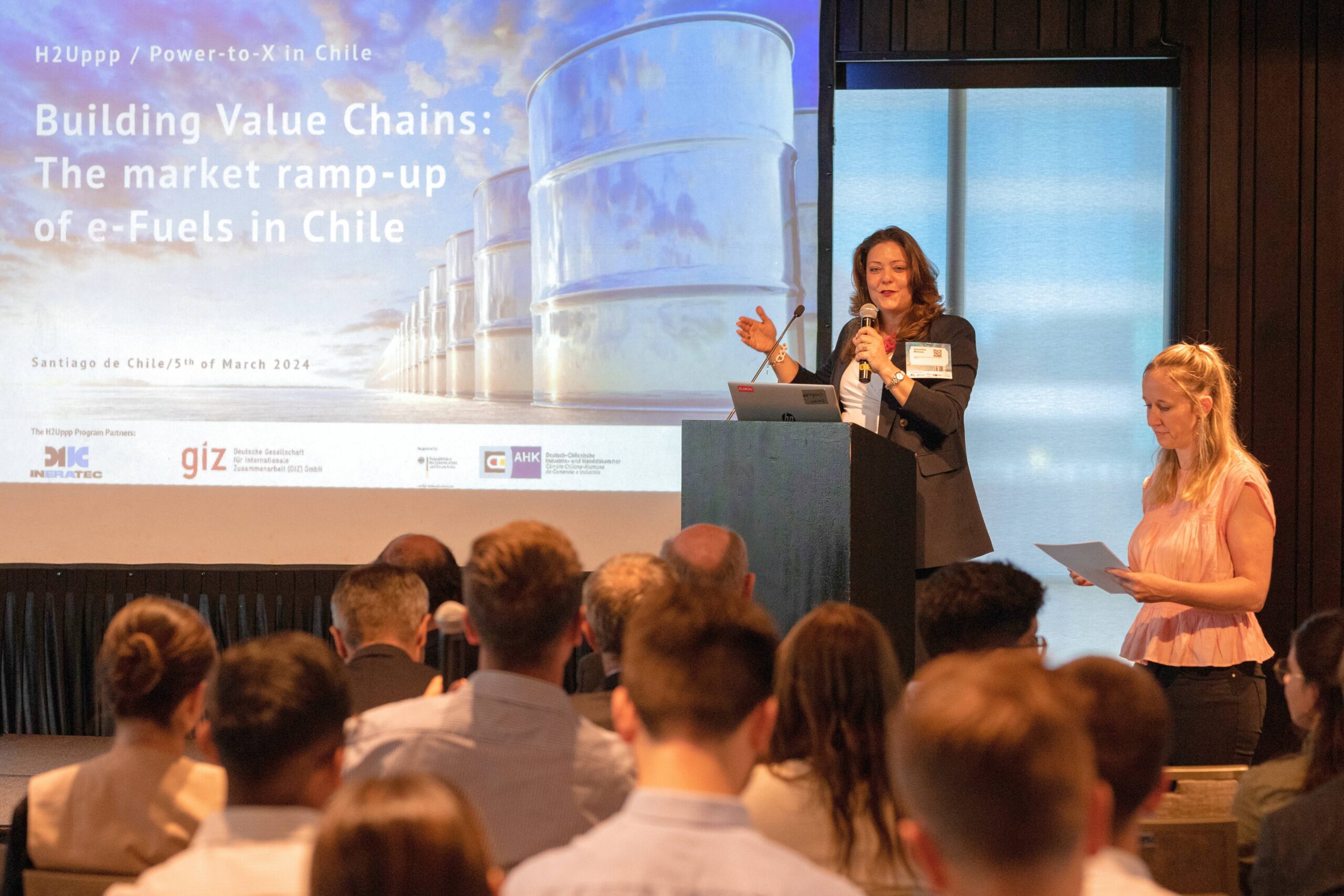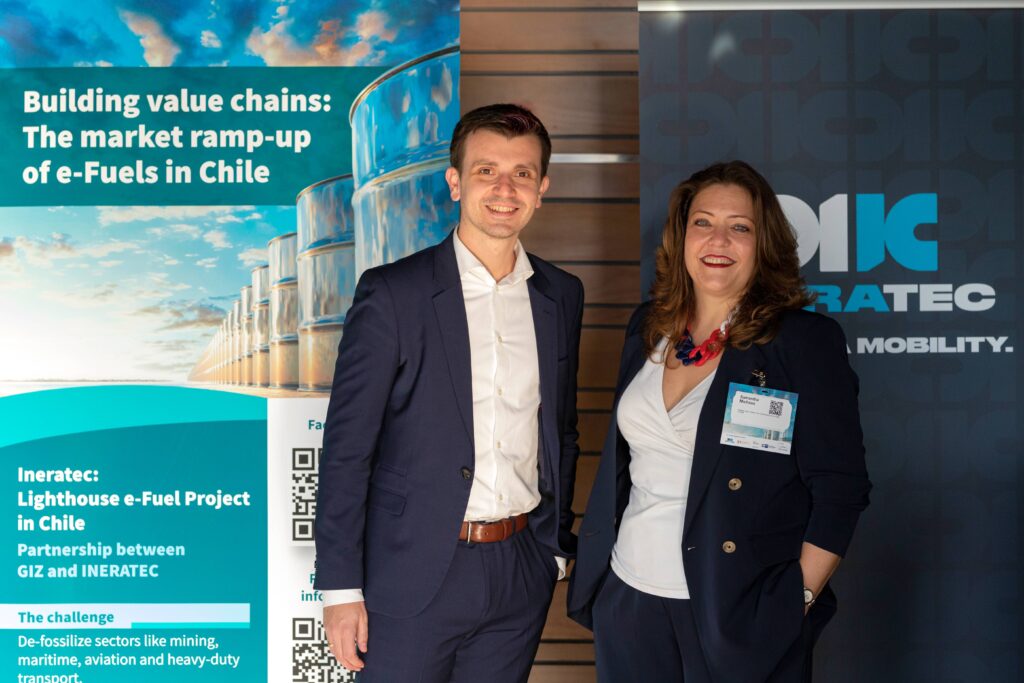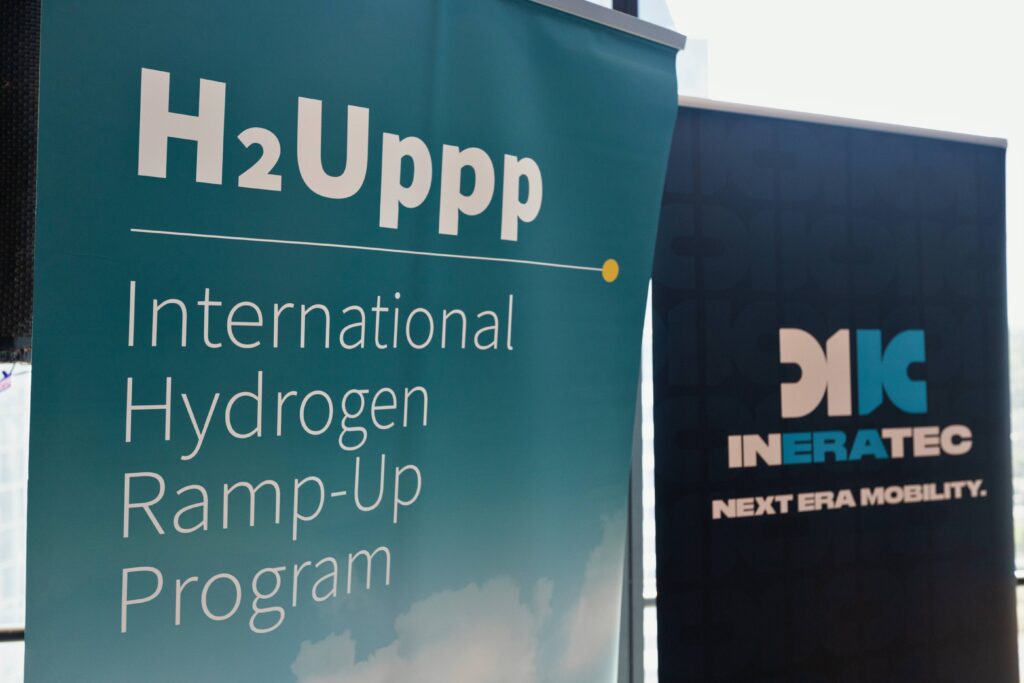Chile has an exceptional potential to produce large quantities of e-fuels. This potential has been validated by studies carried out by H2Uppp and Ineratec, which identified ten viable sites for the establishment of e-fuel plants. The selection is based on a thorough analysis of local resources and economic feasibility, including the identification of potential suppliers of raw materials such as renewable energy, CO2 and water, as well as potential customers. The results of the H2Uppp project already underscore the viability and economic attractiveness of e-fuel production in Chile and provide a blueprint for similar initiatives in developing and emerging countries worldwide.
In addition to the potentials analysis, H2Uppp and Ineratec designed a Power-to-Liquid plant with a capacity of up to 50,000 tonnes of e-fuels per year. As the preparation of the production sites progresses, Ineratec is now actively seeking strategic partnerships with local and international stakeholders interested in building these state-of-the-art e-fuel plants.
By harnessing the power of green hydrogen and Power-to-X technology, we are ending the dependency on fossil fuels. This is about creating a robust, sustainable ecosystem that propels countries like Chile and similar economies into a new age of industrial competitiveness and environmental stewardship.
Philipp Engelkamp, Managing Director of Ineratec
The production of e-fuels is in line with Chile’s national hydrogen strategy, with the aim to reduce fossil fuel imports and mitigate the risks associated with global oil price fluctuations and supply disruptions. This will also enhance the resilience of Chile’s energy sector and increase the competitiveness of its industries on the global stage.
The local production of synthetic fuels from green hydrogen will help to improve the competitiveness of the Chilean industry by reducing its carbon footprint, while favouring energy independence, avoiding the use and import of fossil fuels.
George Cristodorescu, Head of GIZ Regional Energy Cluster
The International Hydrogen Ramp-up Programme (H2Uppp) of the German Federal Ministry for Economic Affairs and Climate Action (BMWK) promotes projects and market development for green hydrogen in selected developing and emerging countries as part of the National Hydrogen Strategy.


